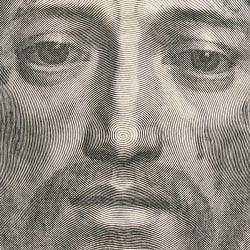Exotic robots
A pencil is potentially profound,
which creative children and wise peoples
ought utilize.
Methinks even the sky
shall eventually die.
Empty coffee mug on a glass table.
My mom is gone to work
My brother still sleeps.
Anticipating another lonely day
and further adaption into
the cave of solitude.
The worthy world only whirls.
Friendly exotic robots flourish.
Faltering from acceptance
while woe the gate
invites dim worship and
discovery of our abyss.
Gods gracefully control
our slim infinite souls.
Pondering priveledge.
The funeral guest is flustered.
Shake the brain and create.
A whimsical nature correlates.
Do you believe
birds are gentle jets, serene,
soaring with purpose and peace?
Death is like a shadow
floating into bright destiny.
Words linger wilting.
Reveries and memories
seduce stillness.
The dry leaves fall twirling
with each decent gust.
Scribbles of random thought.
A perfectly fried egg
in fragrant white rice.
Corrup characters
don't know themselves.
Always aging relentlessly.
The magic of money.
Patiently awsiting entertainmenf,
thus we meditate.
Sharing a cigarette.
Moths join the night.
I'm going to chug a water bottle
and then hide myself
in a cozy blanket on the couch
to try relaxing.
Pure sugar in living bananas.
Dinner.
Goodnight.

Like the greatest of the
Like the greatest of the Symbolists, you use imagery not for its own sake but in the service of the emotional complex that the poem creates around the reader. Depending on the emotion presented, this can be either glorious or terrifying; in the case of this poem, it is terrifying. This poem is also like one of those architectural wonders that appear to be overwhelimg as they tower over the viewer; your poem towers over the reader. Again I think of an allusion to Eliot, the falling towers in the last section of The Waste Land. When a poem makes me think back to Eliot, and to the great Frency Symbolists, I know that poem is well ground in the literary history that has preceded it. Reading this for the first time, I also thought of the readers of The Waste Land before it became a classroom classic: the emotional shock of the words, the unbridled power of the imagery. Your poem partakes of this, in subtle ways that reveal themselves to the reader only after each line has been read. I would not care to stand beneath the towering of this poem on a moonless, starless night: the way Shelley was frightened of Mount Blanc, I would be frightened of this poem. To borrow Mary Shelley's words, in the introduction to the 1831 edition of Frankenstein, I think ths poem is "one to make the reader dread to look round . . ."
Starward-Led [in Chrismation, Januarius]